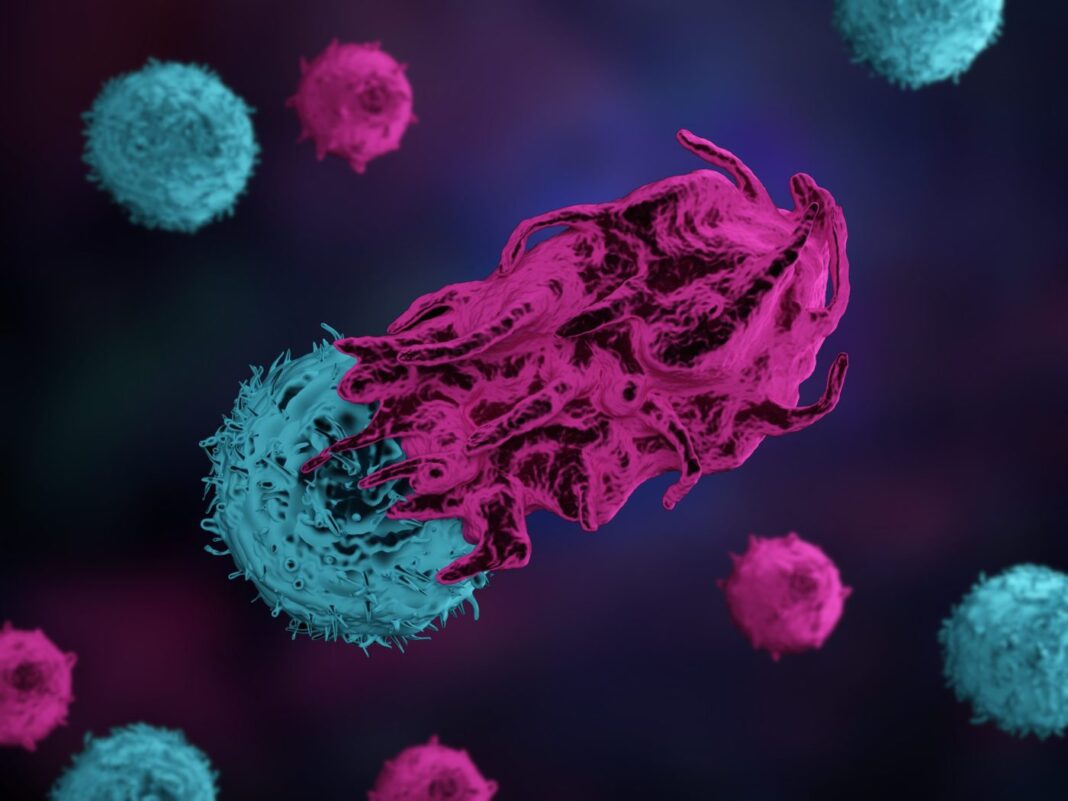New research by scientists at Cleveland Clinic demonstrates that pathogenic polymerase epsilon and delta (POLE/POLD1) genetic mutations lead to improved response to immune checkpoint blockade. The findings demonstrate that certain classes of drugs are more effective in cases where the genetic makeup of the tumor and not the type or origin of the tumor should determine the decision process for treatment.
The study is published in the journal Nature Genetics in a paper titled, “Functional landscapes of POLE and POLD1 mutations in checkpoint blockade-dependent antitumor immunity.”
“Defects in pathways governing genomic fidelity have been linked to improved response to immune checkpoint blockade therapy (ICB),” wrote the researchers. “Pathogenic POLE/POLD1 mutations can cause hypermutation, yet how diverse mutations in POLE/POLD1 influence antitumor immunity following ICB is unclear. Here, we comprehensively determined the effect of POLE/POLD1 mutations in ICB and elucidated the mechanistic impact of these mutations on tumor immunity.”
“To date, this is the most comprehensive analysis of the mutations in POLE/POLD1 genes in patients with cancer,” said Timothy Chan, MD, PhD, chair of the Center for Immunotherapy and Precision Immuno-Oncology at Cleveland Clinic. “Our research here shows that patients with POLE/POLD1 mutations should get immune checkpoint blockade therapy as a preferred treatment, and that POLE/POLD1 mutations are a potential indication for immunotherapy regardless of the cancer type or where the cancer started in the body.”
The team generated statistical learning models based on mutational signatures of the POLE/POLD1 mutant tumors. Modeling demonstrated high accuracy for distinguishing the tumors with pathogenic POLE/POLD1 mutations from tumors with the functional mutation. The scientists observed the model outperformed other traditional approaches for identifying the patients with pathogenic POLE/POLD1 mutations that are more likely to benefit from immunotherapy.
Further analysis indicated that the underlying mechanism is associated with the increased quantity and quality of the immunogenic mutations, as well as the improved immune microenvironment in the tumors harboring pathogenic POLE/POLD1 mutations.
“The short-term impact of this study on cancer immunotherapy is that we demonstrated that tumors with functional POLE/POLD1 mutations are sensitive to immunotherapy,” said Xiaoxiao Ma, PhD, a postdoctoral researcher at Cleveland Clinic and lead author of the study. “The long-term impact is that we demonstrated it’s possible to utilize genomic features, such as mutational signatures, to identify a major indication for immune checkpoint therapy.”






